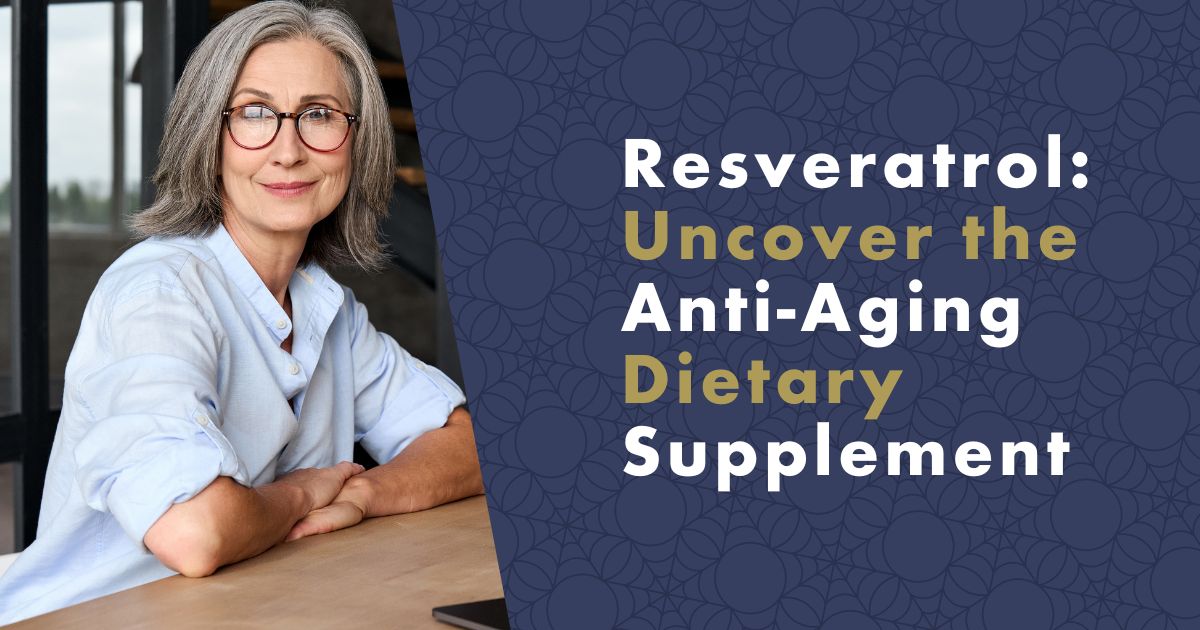As the popularity of longevity grows and research in this field increases, so does the interest in resveratrol, which is often associated with longevity. This potent antioxidant is found in various plants, including grapes, blueberries, and peanuts. It has been linked to a range of health benefits, from improving cardiovascular health to combating aging. Let's take a closer look at the effects of resveratrol, how it differs from trans-resveratrol, and what to be aware of.

What Is Resveratrol?
Resveratrol is a type of polyphenol, which is a group of natural compounds found in plants. It is an antioxidant that helps protect cells from damage by free radicals. Resveratrol can be found in grapes, blueberries, peanuts, and other plants, but it is most commonly associated with red wine.
What's the Difference between Trans-Resveratrol and Resveratrol?
Trans-resveratrol and resveratrol are two forms of the same antioxidant. The difference lies in the fact that trans-resveratrol is an isomer of resveratrol. This means that trans-resveratrol and resveratrol have the same chemical structure but differ in spatial arrangement. Trans-resveratrol is generally considered the more bioactive form of resveratrol, meaning it is much more effective.
What Is the Mechanism of Action of Resveratrol?
Resveratrol acts as an antioxidant and has anti-inflammatory properties. It is often linked to longevity, and while several successful studies on mice have demonstrated this, there is currently no clear evidence that it increases longevity in humans. What we do know for certain is that resveratrol helps improve cardiovascular health by reducing cholesterol levels and blood pressure.
Resveratrol has also been the subject of many studies regarding its potential effects on age-related diseases. Oxidative stress, a significant factor in the aging process, leads to cell and tissue damage. Resveratrol has been shown to be a potent antioxidant that helps reduce oxidative stress in the body. Some studies have found that resveratrol may improve memory and cognitive function, even in older individuals.
What Are the Health Effects of Resveratrol?
Resveratrol has been associated with several health benefits, including:
Improved Cardiovascular Health
Resveratrol may reduce cholesterol and blood pressure levels, which can lower the risk of heart disease.
Anti-Inflammatory Effects
Resveratrol may have anti-inflammatory effects, helping to reduce inflammation in the body.
Antioxidant Effects
Resveratrol has strong antioxidant properties, which can help protect cells from damage by free radicals.
Anti-Cancer Effects
Some studies suggest that resveratrol may have anti-cancer effects, especially in the prevention of breast and colon cancer.
Anti-Aging Effects
Resveratrol is also associated with anti-aging effects as it helps protect cells from damage and reduces the risk of degenerative diseases.
What Are the Potential Risks of Resveratrol?
While resveratrol is generally considered a safe dietary supplement, there are some potential risks to be aware of:
Drug Interactions
Resveratrol can interact with certain medications, such as anticoagulants and some cancer drugs. It's important to consult with a doctor before starting resveratrol supplementation.
Unproven Effects
Many of the reported benefits of resveratrol come from animal studies or laboratory experiments. Less is known about its effects in humans, and some of its claimed benefits are not confirmed.
Dosage and Quality
There are many resveratrol supplements on the market, but the quality and dosage can vary significantly. It's important to choose a high-quality product and follow recommended dosages.
How to Start Using Resveratrol?
If you decide to start using resveratrol, it's important to select a high-quality product from a reputable manufacturer. We have chosen to trust Czech manufacturer mcePharma. Recommended dosage may vary depending on the product, but generally, a daily intake of 150-500 mg of resveratrol is recommended.
It's also important to note that resveratrol cannot replace a healthy lifestyle. If you're aiming to improve your health, focus on a balanced diet, exercise, and quality sleep.
Sources:
- What is Resveratrol, and is it Good for Longevity?
- Tabrizi, R., Ostadmohammadi, V., Lankarani, K. B., Akbari, M., Heydari, S. T., Kolahdooz, F., ... & Asemi, Z. (2020). The effects of resveratrol intake on weight loss: a systematic review and meta-analysis of randomized controlled trials. Critical Reviews in Food Science and Nutrition, 60(3), 375-390.
- Higashida, K., Kim, S. H., Jung, S. R., Asaka, M., Holloszy, J. O., & Han, D. H. (2013). Effects of Resveratrol and SIRT1 on PGC-1α Activity and Mitochondrial Biogenesis: A Reevaluation. PLoS biology, 11(7).
- Price, N. L., Gomes, A. P., Ling, A. J., & Sinclair, D. A. (2012). SIRT1 is required for AMPK activation and the beneficial effects of resveratrol on mitochondrial function. Cell metabolism, 15(5), 675-690.
- Bitterman, J. L., & Chung, J. H. (2015). Metabolic effects of resveratrol: addressing the controversies. Cell. Molecular life sciences, 72(8), 1473-1488.
- Hector, K. L., Lagisz, M., & Nakagawa, S. (2012). The effect of resveratrol on longevity across species: a meta-analysis. Biology letters, 8(5), 790-793.

